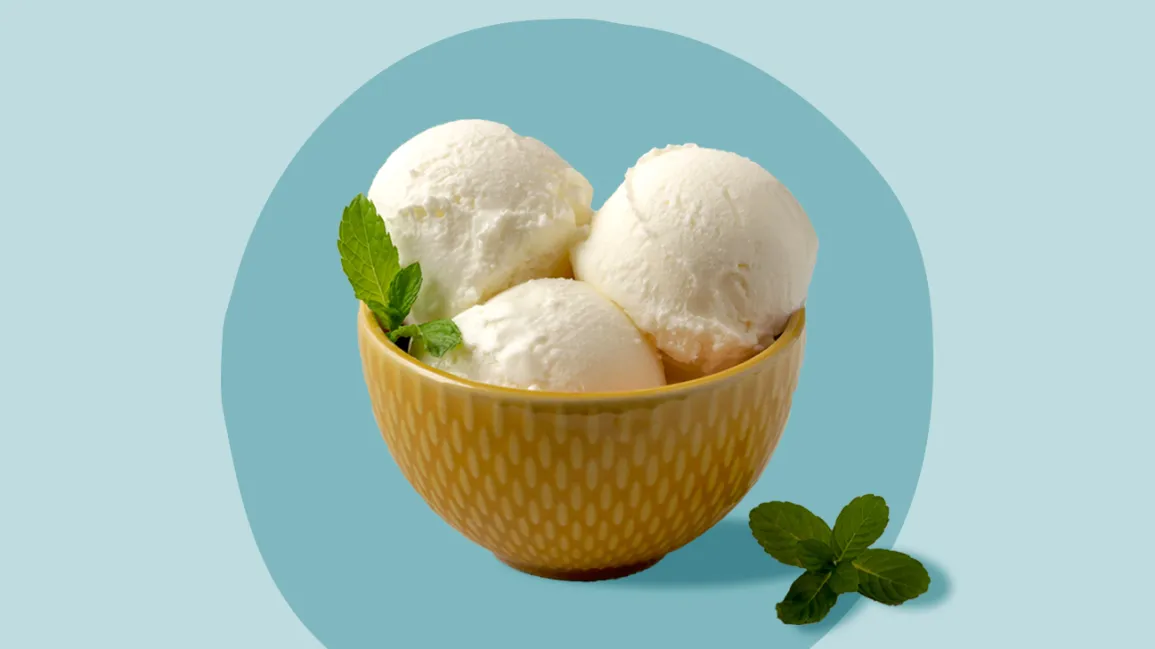Most people think ice cream is nothing but a guilty pleasure. Surely, the idea that ice cream could fit into a healthy eating plan is laughable, right?
Wrong!
Ice cream nutrition facts are challenging long-held beliefs and making us rethink our dietary choices.
It turns out that our favorite frozen treat is more than just a sugary indulgence. With essential nutrients like calcium and vitamin D packed into each scoop, ice cream has some hidden health benefits that might just raise an eyebrow or two. Yes, the very dessert you’ve been eyeing guiltily can actually contribute positively to your diet.
We’ve all been there—hesitating over that extra scoop, worrying about the sugar rush. But what if you knew that understanding ice cream nutrition facts could transform how you approach healthy eating? No more needless guilt, just smart choices and mindful indulgence.
Ice Cream Can Be a Source of Essential Nutrients
Ice cream is a surprising source of essential nutrients. Yes, your favorite dessert could actually be doing your body some good.
Let’s break down the ice cream nutritional content that makes this possible.
Calcium
This essential mineral is abundant in milk-based ice creams and plays a critical role in maintaining strong bones and teeth. A serving of ice cream can contribute to your daily calcium intake, helping to prevent osteoporosis and support overall bone health.
Vitamin D
Often dubbed the “sunshine vitamin,” vitamin D is crucial for calcium absorption and bone growth. Many ice creams are fortified with vitamin D, making them not only a tasty treat but also a sneaky way to boost your nutrient intake. Regular consumption in moderation can help you hit those vitamin D goals without the need for supplements.
Protein
Protein is another essential nutrient found in ice cream. While it might not pack the same protein punch as a steak, ice cream can still provide a decent amount, especially if it contains added ingredients like nuts or peanut butter. Protein is vital for muscle repair and growth, and a scoop of ice cream post-workout can be a delightful way to support your fitness goals.
The nutritional content of milk-based products doesn’t stop there. Ice cream also contains other beneficial nutrients such as potassium and phosphorus, which are essential for maintaining healthy bodily functions. Potassium helps regulate fluid balance and muscle contractions, while phosphorus plays a role in energy production and bone health.
Now, before you rush to the nearest ice cream truck rental for a celebratory scoop, remember that moderation is key. While ice cream can be a nutrient-rich addition to your diet, it’s still important to balance it with other healthy foods.
Portion Control: Enjoying Ice Cream without the Guilt
Portion control helps in maintaining a healthy diet, and it’s especially relevant when indulging in ice cream. While it’s easy to get carried away with a heaping bowl of your favorite flavor, a modest serving can satisfy your sweet cravings without wreaking havoc on your calorie intake.
Here’s the scoop: a small serving of ice cream can provide the delightful taste you crave without the excess calories that come from overindulgence. By practicing portion control, you can enjoy the creamy goodness of ice cream and keep your diet in check. This isn’t just about willpower; it’s about making smart choices that align with your health goals.
Research shows that portion control is crucial for weight management. Controlling the size of your ice cream serving helps you maintain a balanced diet, and let’s face it—who knew that a little restraint could make your ice cream indulgence guilt-free? It’s all about moderation and understanding the ice cream nutritional content. A single serving can offer a surprising amount of satisfaction without tipping the scales.
The Nutritional Boost from Natural Additives
The nutritional value of ice cream isn’t just about the calories and fat content listed on the ice cream nutrition label. It’s also about the quality of the ingredients that go into each delicious scoop.
High-quality ingredients can significantly boost the nutritional profile of your favorite dessert, making it a more wholesome choice than you might expect.
Let’s start with real fruit. Adding strawberries, blueberries, or mangoes to ice cream doesn’t just enhance the flavor—it also packs a punch of antioxidants and vitamins. These natural additives provide essential nutrients that contribute to overall health, including vitamin C for immune support and fiber for digestive health.
Nuts, such as almonds, walnuts, and pistachios, are another fantastic addition to ice cream. They bring a delightful crunch and a hefty dose of healthy fats, protein, and fiber. These nutrients are known for promoting heart health and providing long-lasting energy. Plus, nuts contain antioxidants that help protect your body from harmful free radicals.
Dark chocolate, often featured in premium ice creams, is more than a decadent treat. It’s a source of powerful antioxidants called flavonoids, which have been linked to improved heart health and reduced inflammation. Dark chocolate also contains iron, magnesium, and zinc, essential minerals that support various bodily functions.
So, when you scan the ice cream nutrition label next time, don’t just glance at the calories. Look deeper into the ingredient list. The presence of real fruit, nuts, and dark chocolate can make your ice cream more health-conscious than some of your other food choices. Who knew that a dessert could offer such surprising benefits?
The Role of Treats in Mental Well-being
Indulging in a treat like ice cream every now and then isn’t just about satisfying a craving—it’s about maintaining your mental well-being. Contrary to the notion that desserts are purely dietary villains, they play a crucial role in reducing feelings of deprivation and promoting a healthier relationship with food. This isn’t just wishful thinking; it’s backed by solid psychological principles.
The occasional indulgence in a treat, whether it’s a simple ice cream cone or a scoop of vanilla ice cream, can provide a significant boost to your mood. Research shows that allowing yourself to enjoy a treat in moderation can reduce stress and improve overall mental health. When you give yourself permission to enjoy something delicious without guilt, you’re less likely to fall into the trap of restrictive dieting, which often leads to overeating and an unhealthy relationship with food.
Moreover, ice cream’s nutritional profile isn’t just limited to indulgence. For instance, an ice cream cone nutrition breakdown reveals that it can be a source of carbohydrates and even a small amount of protein. Similarly, vanilla ice cream nutrition facts highlight its calcium content, which is essential for maintaining healthy bones. These little nutritional bonuses can make your treat feel less like a cheat and more like a balanced part of your diet.
But let’s not forget the most crucial element: happiness. Sometimes, a scoop of happiness is the best diet advice you can get. Enjoying your favorite ice cream can release endorphins, the body’s natural feel-good chemicals, making you feel happier and more satisfied. This positive reinforcement helps in adhering to your overall diet, as you don’t feel like you’re constantly missing out.












